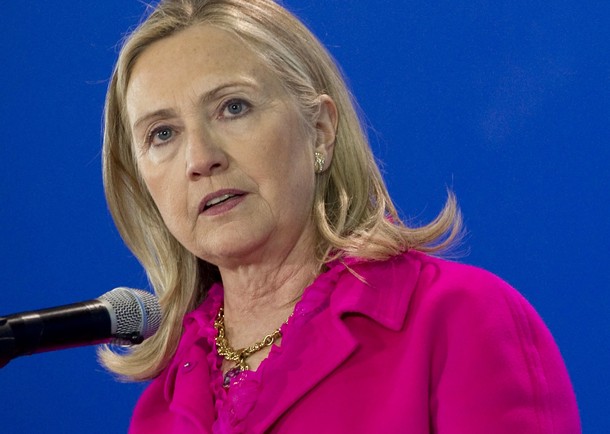Remarks at the Special Session on Gender at the 4th High Level Forum on Aid Effectiveness
Remarks
Hillary Rodham Clinton
Secretary of State
Busan Exhibition and Convention Center
Busan, South Korea
November 30, 2011
Thank
you so much, Michelle, and thanks to all of you who are here at the
Session on Gender as part of the Fourth High-Level Forum on Aid
Effectiveness. First and foremost, I want to thank UN Women Executive
Director Michelle Bachelet, Korean Minister for Gender Equality and
Family Minister Kim Kum-lae, everyone participating on this panel, and
all of my colleagues and counterparts in the audience for prioritizing
this discussion today.
I was standing listening to Michelle, who
in her usual effective and strong way was making the case, but I could
sense in her voice the same frustration that I feel from time to time,
which is: How much longer do we have to make this case? This is a cause
near and dear to my heart, as I know it is to many of you. It is at the
core of our development and diplomacy policy. We know all the reasons
why removing barriers to women’s integration and participation is
essential to building growth and development, and we know that it is now
quantified. The World Bank, the IMF, other internationally recognized
sources have demonstrated time and again how much GDP can be increased,
how much per capital can be increased. So we really have no choice but
to tailor and target women and girls in our development programs.
And
there’s an old saying: “What gets measured, gets noticed.” So that
means we must collect data so we are constantly focused on how better to
integrate women into our economies, and using this evidence, to build
gender-inclusive development policies that work.
Now, for example,
many countries collect data on loans given to small and medium sized
businesses. But very few track how many of those businesses are owned by
women. How many women who apply for small business loans actually get
them? What are those loans worth compared to loans granted to men? With
reliable answers to questions such as these, we can begin reforming
credit policies, asset, ownership, and inheritance laws that still
disadvantage women.
When we measure these same indicators consistently over time, then we will notice whether or not we are making progress.
Earlier
this year at the OECD’s 50th Anniversary Ministerial, I called on the
OECD, the World Bank, the UN, and the international community to
standardize the data we have on women’s inclusion to make it more
useful. These institutions have now come to the table here in Busan with
a list of core indicators to track women’s status in education,
employment, and entrepreneurship.
And today I am very pleased to
announce a new collaboration between several governments and
international organizations. It’s called the Evidence and Data for
Gender Equality, or EDGE. This initiative responds to the growing demand
of countries for financial and technical support to improve gender
statistics. EDGE will help harmonize economic data broken down by gender
across different surveys and national systems. Five donors have already
pledged to support the EDGE initiative, creating partnerships with
National Statistics Offices to implement common pilot activities that
collect data on women’s entrepreneurship and assets – two areas where
gender gaps in the data are largest.
Now, gathering this kind of
empirical evidence is critical to the Busan Action Plan for Gender
Equality and Development. And I look forward to seeing this initial data
report and implementation plan that we have each agreed to share by
next June.
In this forum, we have emphasized the need to hold
ourselves to higher standards of accountability and transparency, and to
stay focused on delivering results. The Action Plan will help us track
our progress and stay on target over the next few years. And most
importantly, it will help ensure the commitments we make here are
translated into real improved opportunities for women – more women
accessing education, more women finding employment, more women
entrepreneurs receiving small business loans.
I believe we are
entering the age of participation, one in which every individual can
make valuable contributions to the global marketplace if they have the
opportunity to do so. And it is incumbent upon us to make sure that men
and women alike have that opportunity.
So I am very grateful to
each of you for recognizing the absolute core importance of this work,
and I turn it back to my friend, Executive Director Bachelet, and our
panel of experts. Thank you.

